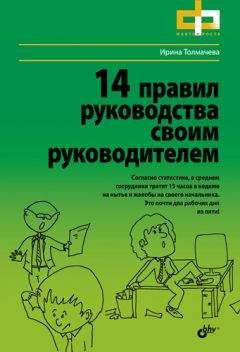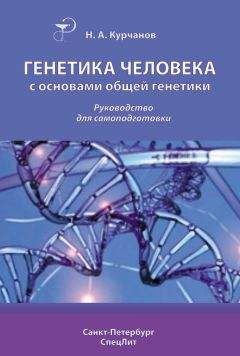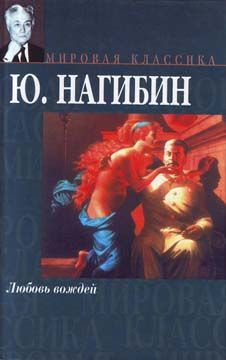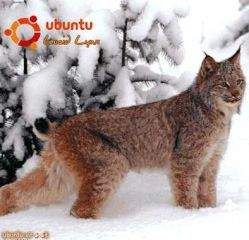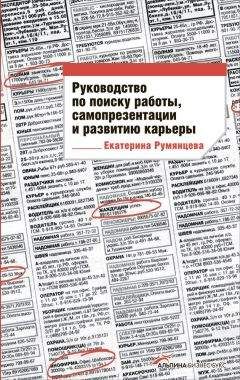Ольга Ламонова - Английский язык. Ирландские волшебные сказки / Irish Fairy Tales
When the king’s daughter had the ring on her finger she looked at it and liked it. Then the ring spoke, and said, “My life is in your hands now; don’t part from the ring, and don’t let it go to any man, and you’ll give me a long life.”
The Gruagach na g-cleasan and his eleven sons went into the king’s castle (Хитрый Груагах и его одиннадцать сыновей пошли в замок короля) and played on every instrument known to man (и стали играть на всевозможных инструментах: «на каждом инструменте, известном человеку»), and they showed every sport (и они продемонстрировали разные забавы: «каждую забаву»; sport – спорт, спортивные игры; забава, развлечение, потеха) that could be shown before a king (какие только можно продемонстрировать королю: «перед королем»; to show /showed, shown/). This they did for three days and three nights (все это они проделывали три дня и три ночи). When that time was over (когда это время истекло), and they were going away (и они собирались /покинуть замок/), the king spoke up and asked (громко заговорил король и спросил; to speak /spoke, spoken/),
The Gruagach na g-cleasan and his eleven sons went into the king’s castle and played on every instrument known to man, and they showed every sport that could be shown before a king. This they did for three days and three nights. When that time was over, and they were going away, the king spoke up and asked,
“What is the reward that you would like (какую награду вы хотели бы получить: «какая награда, которую вы хотели бы»), and what would be pleasing to you from me (и что бы доставило вам удовольствие: «и что бы было доставляющим удовольствие для вас от меня»)?”
“What is the reward that you would like, and what would be pleasing to you from me?”
“We want neither gold nor silver (мы не хотим ни злата, ни серебра),” said the Gruagach; “all the reward we ask of you is the ring (вся награда, о которой мы тебя просим, это кольцо; to ask – спрашивать; просить; требовать) that I lost on a time (которое я как-то: «в одно время» потерял; to lose /lost/), and which is now on your daughter’s finger (и которое сейчас на пальце твоей дочери).”
“If my daughter has the ring that you lost (если у моей дочери есть кольцо, которое ты потерял), it shall be given to you (оно должно быть отдано тебе; to give /gave, given/),” said the king.
“We want neither gold nor silver,” said the Gruagach; “all the reward we ask of you is the ring that I lost on a time, and which is now on your daughter’s finger.”
“If my daughter has the ring that you lost, it shall be given to you,” said the king.
Now the ring spoke to the king’s daughter and said (теперь уж кольцо заговорило с королевской дочерью и сказало), “Don’t part with me for anything (ни за что не расставайся со мной) till you send your trusted man (пока ты не пошлешь своего доверенного человека; to trust – доверять, верить) for three gallons of strong spirits (за тремя галлонами крепкого алкоголя; gallon – галлон /мера жидких и сыпучих тел/ = 4,54 литра; strong – сильный; крепкий, неразведенный; spirit – душа, дух; спирт, алкоголь) and a gallon of wheat (и галлоном пшеницы); put the spirits and the wheat together in an open barrel before the fire (помести алкоголь и пшеницу вместе в открытой бочке перед огнем).
Now the ring spoke to the king’s daughter and said, “Don’t part with me for anything till you send your trusted man for three gallons of strong spirits and a gallon of wheat; put the spirits and the wheat together in an open barrel before the fire.
When your father says you must give up the ring (когда твой отец скажет, что ты должна отдать кольцо), do you answer back (ты ответь; back – назад, обратно; в ответ) that you have never left the summer-house (что ты вовсе не покидала беседку; never – никогда; /эмоц. – усил./ нисколько, никоим образом; to leave /left/), that you have nothing on your hand (что у тебя нет ничего на руке) but what is your own and paid for (кроме твоего собственного /колечка/, за которое все уплачено: «что бы не было твоим собственным и за что не было бы заплачено»).
When your father says you must give up the ring, do you answer back that you have never left the summer-house, that you have nothing on your hand but what is your own and paid for.
Your father will say then (тогда твой отец скажет) that you must part with me (что ты должна расстаться со мной), and give me up to the stranger (и отдать меня этому чужестранцу: «незнакомцу»). When he forces you in this way (когда он станет принуждать тебя таким образом; force – сила, мощь; насилие, принуждение; to force – заставлять, принуждать, вынуждать; way – путь, дорога; способ, метод, образ действия), and you can keep me no longer (и ты больше не сможешь меня оставить у себя: «ты сможешь хранить меня никак дольше»), then throw me into the fire (тогда брось меня в огонь); and you’ll see great sport and strange things (и ты увидишь замечательную забаву и странные события; great – великий, большой; /разг./ замечательный; sport – спорт, спортивные игры; забава, развлечение, потеха; strange – чужой, незнакомый; странный; thing – вещь, предмет; дело, событие).”
Your father will say then that you must part with me, and give me up to the stranger. When he forces you in this way, and you can keep me no longer, then throw me into the fire; and you’ll see great sport and strange things.”
The king’s daughter sent for the spirits and the wheat (королевская дочь отправила за алкоголем и пшеницей), had them mixed together (велела их перемешать: «смешать вместе»; to have smth. done – велеть, приказать сделать что-л. для себя), and put in an open barrel before the fire (и поставила /смесь/ в открытой бочке перед огнем).
The king called the daughter in, and asked (король позвал дочь и спросил),
“Have you the ring which this stranger lost (есть ли у тебя кольцо, которое потерял этот чужестранец: «незнакомец»; to lose /lost/)?”
The king’s daughter sent for the spirits and the wheat, had them mixed together, and put in an open barrel before the fire.
The king called the daughter in, and asked,
“Have you the ring which this stranger lost?”
“I have a ring (у меня есть одно кольцо),” said she, “but it’s my own (но оно мое собственное), and I’ll not part with it (и я не расстанусь с ним). I’ll not give it to him nor to any man (я не отдам его ни ему, ни кому-либо другому).”
“You must (ты должна),” said the king, “for my word is pledged (потому что я дал слово: «мое слово дано»; to pledge – закладывать, отдавать в залог; обязываться, ручаться), and you must part with the ring (и ты должна расстаться с этим кольцом)!”
“I have a ring,” said she, “but it’s my own, and I’ll not part with it. I’ll not give it to him nor to any man.”
“You must,” said the king, “for my word is pledged, and you must part with the ring!”
When she heard this (когда она услышала это), she slipped the ring from her finger (она сняла кольцо со своего пальца; to slip – скользить, плавно или быстро передвигаться; снимать, стягивать) and threw it into the fire (и бросила его в огонь; to throw /threw, thrown/).
That moment the eleven brothers made eleven pairs of tongs of themselves (в этот момент одиннадцать братьев превратились в одиннадцать пар щипцов: «сделали одиннадцать пар щипцов из самих себя»); their father, the old Gruagach, was the twelfth pair (а их отец, Груагах, был двенадцатой парой).
When she heard this, she slipped the ring from her finger and threw it into the fire.
That moment the eleven brothers made eleven pairs of tongs of themselves; their father, the old Gruagach, was the twelfth pair.
The twelve jumped into the fire (/все/ двенадцать прыгнули = ринулись в огонь) to know in what spark of it (чтобы узнать, в какой искре /этого огня/) would they find the old fisherman’s son (они обнаружат сына старого рыбака); and they were a long time working and searching through the fire (в течение продолжительного времени они двигались и рыскали по огню; long – длинный; длительный, продолжительный; to work – работать, трудиться; двигаться, шевелиться; to search – искать, разыскивать; обыскивать, обшаривать; through – через, сквозь; по), when out flew a spark (когда наружу = из огня вылетала искра; to fly /flew, flown/), and into the barrel (и /бросилась/ в бочку).
The twelve jumped into the fire to know in what spark of it would they find the old fisherman’s son; and they were a long time working and searching through the fire, when out flew a spark, and into the barrel.
The twelve made themselves men (/все/ двенадцать превратились в мужчин: «сделали сами себя мужчинами»), turned over the barrel (перевернули бочку), and spilled the wheat on the floor (и просыпали пшеницу на пол; to spill – проливать; просыпать). Then in a twinkling (затем, в мгновенье /ока/; twinkling – мерцание, мигание; мгновение, миг, момент; to twinkle – мерцать, мигать) they were twelve cocks strutting around (они /уже/ были двенадцатью петухами, важно расхаживающими по /просыпанной пшенице/; to strut – ходить с важным, напыщенным или самодовольным видом; round – кругом, вокруг; повсюду).
The twelve made themselves men, turned over the barrel, and spilled the wheat on the floor. Then in a twinkling they were twelve cocks strutting around.
They fell to and picked away at the wheat (они набросились на пшеницу и стали ее клевать; to fall /fell, fallen/ – падать; to fall to – браться, приниматься за /что-л./, начинать делать /что-л./; to pick – клевать) to know which one would find the fisherman’s son (чтобы узнать, кто найдет сына рыбака). Soon one dropped on one side (вскоре один упал в одну сторону), and a second on the opposite side (а второй напротив: «в противоположную сторону»), until all twelve were lying drunk from the wheat (/и так они падали до тех пор,/ пока все двенадцать не лежали пьяными, /объевшись/ пшеницей; to lie – лежать; быть, сохраняться, оставаться /в каком-л. положении или состоянии/).
